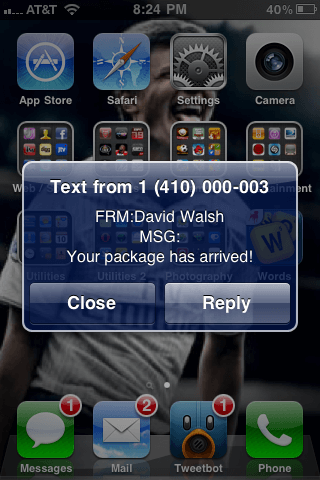Sync Gulp Tasks with run-sequence
gulp.js is an awesome utility for so many things. I've recently started using gulp as a build tool for the next blog redesign, whenever that may come. In the past I had written my own build scripts but they quickly got messy and I ran into problems with concurrent tasks and knowing when each was complete. gulp.js has made my build code prettier but I still get caught with timing issues due to async tasks.
Of course the nature of JS is becoming async but sometimes I just want a "top down" build process -- that's where run-sequence comes in. With run-sequence I can easily group tasks to ensure they are done before setting off other tasks!
run-sequence works by passing arguments in the form of arrays or strings; an array signifies the tasks can be run concurrently, a string signifies a single task:
var runSequence = require('run-sequence');
gulp.task('some-task', function() {
runSequence(
['task-1', 'task-2', 'task-3'], // These 3 can be done in parallel
'task-4', // ...then just do this
['task-5', 'task-5'], // ...then do these things in parallel
'task-6', // ...then do this
// ....
);
});
Each successive argument waits for the previous task(s) to finish. My future theme's working gulp build file default task looks as follows:
// Create the default run action, which should be the entire build
gulp.task('default', function() {
runSequence(
['copy-js-dir', 'copy-php-files', 'copy-image-files', 'compile-stylus'],
'clone-prism',
['minify-css', 'minify-js'],
'replace-build-ids',
'create-backup-zip',
'move-to-wordpress'
);
});
JavaScript purists will hate on me for not creating my own promises to avoid the need for sync and run-sequence, but to be honest, I don't care. Adding my own promises would make the code messier and with little speed benefit.
Sometimes we have to make concessions for the sake of maintainability -- all developers know that. run-sequence was a concession I've made to keep my code maintainable and logical in my own head.




Thanks for all your articles David!
I recently came across Gulp and encountered the same issues… and found the same solution, before Gulp 4 is released !
with run-sequence, I can even load/queue my tasks as modules and share them across different projects.
I’d add callback in tasks, at least for the sake of example – otherwise tasks depending on it would not wait until it is completed, right?
gulp.task('some-task', function(done) { runSequence('task-1', ['task-2', 'task-3'], done); }Damn, that’s awesome! I remember seeing this module a while back and not thinking much of it, but the feature you demonstrate where you can define subtasks to run in parallel is very impressive.
Took two minutes to setup, works like a charm. Thanks for sharing :)